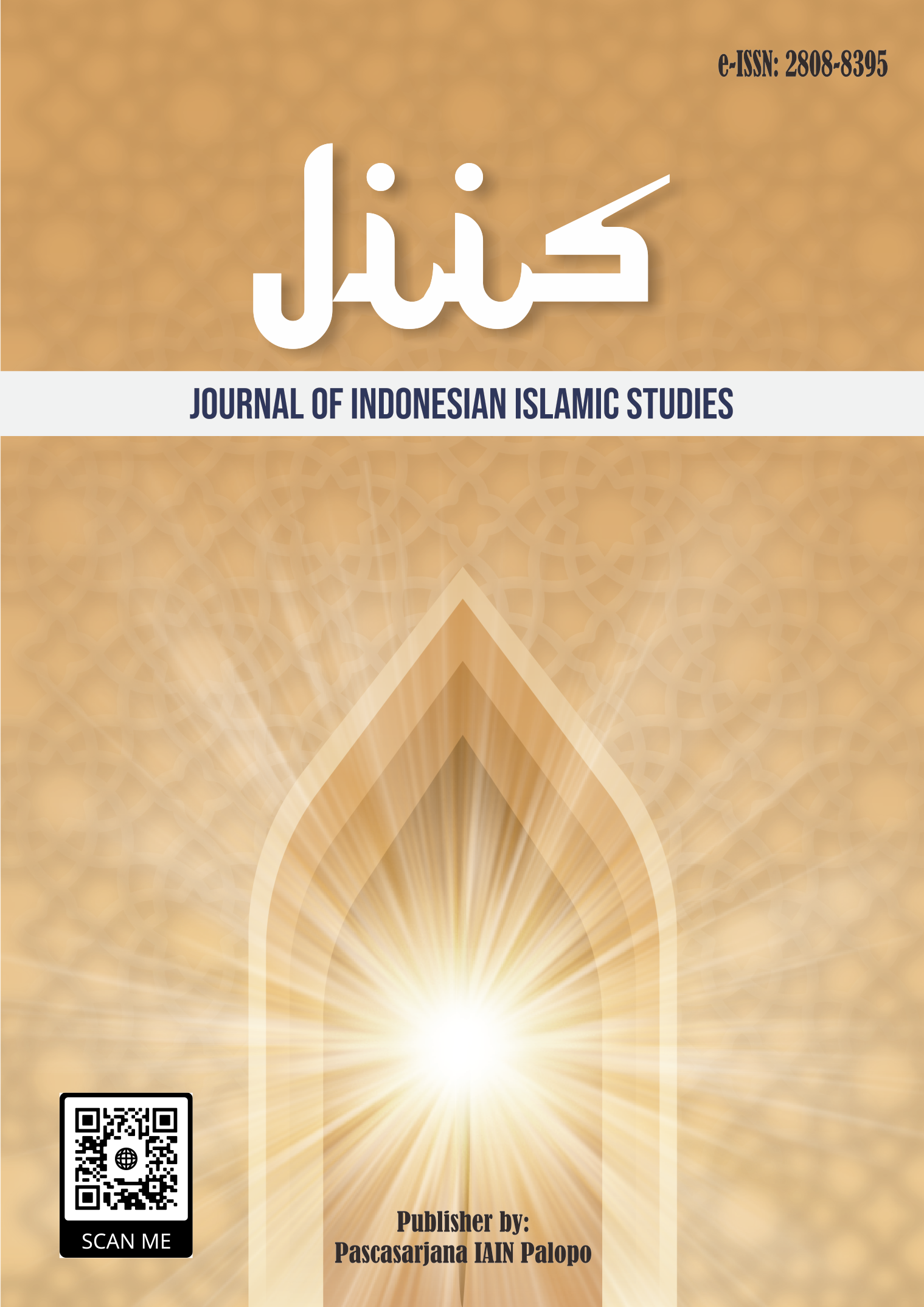Sense of Justice and Human Rights (HAM): Gus Dur's Leadership Concept
DOI:
https://doi.org/10.24256/jiis.v2i2.3216Keywords:
Moderat Islamis, Fair Leader, Human Rights, Gus DurAbstract
The plurality of the Indonesian people regarding race, ethnicity, culture and religion must involve the government to intervene to overcome it in the field. With Islam dominating the population in Indonesia, the author is interested in examining how the definition of Islam as a moderate religion is according to Gus Dur, a just leader who is trying to be implemented in Indonesia with such a diverse population. As well as the author also describes how the form of implementation that has been abandoned by Gus Dur's history. This study aims to raise Gus Dur's point of view on Islam, justice and human rights. Islam is a religion that is rahmatal lil 'alamin and moderate for the Indonesian state. Muslims spread a lot of positive things and harmony in the form of values from the Islamic religion itself. Indonesia as a democratic country, is led by a leader, namely the president and oversees many ministers, departments, institutions, assemblies and many more. The duty of a leader is to maintain the trust of the people, to sacrifice for the security and welfare of the people.
References
Eva Sofia Sari, & Ratih Kusuma Ningtias. (2021). Konsep Pluralisme Pendidikan Islam di Indonesia dalam Perspektif Abdurrahman Wahid (Gus Dur). Awwaliyah: Jurnal PGMI, 4(2).
Hisam Ahyani, Memet Slamet, & Tobroni. (2021). Building the Values of Rahmatan Lil ’Alamin for Indonesian Economic Development at 4.0 Era from the Perspective of Philosophy and Islamic Economic Law. AL-IHKAM: Jurnal Hukum & Pranata Sosial, 16(1). https://doi.org/10.19105/al-lhkam.v16i1.4550
Khakim, A. (2018). HAK ASASI MANUSIA DALAM PERSPEKTIF PENDIDIKAN ISLAM. Journal EVALUASI, 2(1). https://doi.org/10.32478/evaluasi.v2i1.84
Lukman Nul Hakim, E. D. U. (2020). USWATUN HASANAH DALAM AL QURAN Studi Komparatif Makna Uswatun Hasanah di Q.S. al-Ahzab Ayat 21 dengan Q.S. al-Mumtahanah Ayat 4 dan 6. http://jurnal.radenfatah.ac.id/index.php/jsa/article/view/5129
Matroni, Arif, M., Junaidi, S., & Basri, H. (2020). Pemikiran Politik Islam Ibnu Taimiyah dan Gus Dur: Konsep Negara dan Kepemimpinan. 06. No. 2. http://ejournal.kopertais4.or.id/madura/index.php/aliman/article/view/6045
Nasrowi, B. M. (2020). Pemikiran Pendidikan islam KH. Abdurrahman Wahid Tentang Moderasi Islam. Edukasia: Jurnal Pendidikan Dan Pembelajaran, 1(1).
PPPM. (2020). In Catalysis from A to Z. https://doi.org/10.1002/9783527809080.cataz13477
Rohman, F., & Munir, A. A. (2018). MEMBANGUN KERUKUNAN UMAT BERAGAMA DENGAN NILAI-NILAI PLURALISME GUS DUR. An-Nuha, 5(2).
Siddeh, K. A. (2021). Keadilan Dalam Perspektif Hadis. Al-Bayan: Jurnal Ilmu Al-Qur’an Dan Hadist, 4(2). https://doi.org/10.35132/albayan.v4i2.129
Supriyanto, S. (2018). Humanistic Education in Abdurrahman Wahid’s. Edugama: Jurnal Kependidikan Dan Sosial Keagamaan, 4(2). https://doi.org/10.32923/edugama.v4i2.688
Wahid, A. (2006). Islamku, Islam Anda, Islam Kita : Agama Masyarakat Negara Demokrasi. The Wahid Institution.
Wahid, K. A. (2006). Penafsiran Kembali Kebenaran Relatif. gusdur.net
Downloads
Published
How to Cite
Issue
Section
Citation Check
License
Copyright (c) 2023 inayah priyatun

This work is licensed under a Creative Commons Attribution 4.0 International License.
Authors who publish with the Journal of Indonesian Islamic Studies agree to the following terms:
- Authors have retained full articles copyright and grant the Journal of Indonesian Islamic Studies right of first publication with the work simultaneously licensed under Creative Commons Attribution License (CC BY 4.0) that allows others to share the work with an acknowledgement of the work's authorship and initial publication in this journal.
- Authors can enter into separate, additional contractual arrangements for the non-exclusive distribution of the Journal of Indonesian Islamic Studies published version of the work (e.g., post it to an institutional repository or edit it in a book), with an acknowledgment of initial publication in this journal.
- Authors are permitted and encouraged to post their work online (e.g., in institutional repositories or on their website) before and during the submission process, as it can lead to productive exchanges, as well as earlier and greater citation of published work (see also deposit policy and archiving on page journal).









